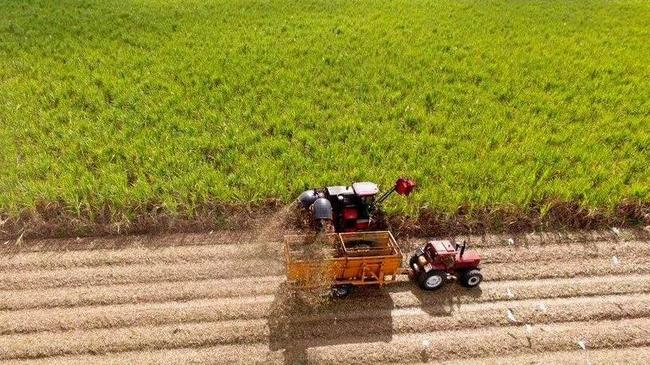Bitter choices in sugar industry
Equity of generations could be lost in deal to save sugar operation

Mackay
Don't miss out on the headlines from Mackay. Followed categories will be added to My News.
AFTER generations on the land, Rita Neilsen and her husband have accepted their cane farming legacy may end with them.
Her husband grew up on their Septimus farm and Mrs Neilsen, a fifth-generation cane grower, watched her children grow up along with the yearly cane crops.
It's been a sweet life, that has treated the family well over the years. But uncertainty has soured her outlook on the sugar industry and Mrs Neilsen says she no longer wants this life for her children.
"We didn't encourage our kids to come back to the farm, because the returns aren't there," she said.
One son who spent his youth on the farm now works at the coal mines.
It's a common story for Mackay region farmers; as sugar cane prices fell, the surging mining industry provided a welcome income stream.
As a farmer, Mrs Neilsen said she had become calloused to uncertainty.
But even she says the uncertainty of the next 12 months is concerning.
With the future of Mackay Sugar still hanging in the balance, Ms Neilsen said cane growers were worried.
"At this point in time no one knows what will happen. No one knows where they are headed. There's not enough money in it (the sugar industry) at the moment."
It's this uncertainty over the miller's future that is forcing Mrs Neilsen to think about her retirement.
"We've been through all that before. If you grow up in the industry your whole life you tend to toughen up emotionally. We've had our ups and downs and we got through it but this is the last point we've come to."
In the second quarter of this year, Mrs Neilsen and other Mackay Sugar shareholders will have to vote on whether or not to accept the offer from German company Nordzucker AG to invest $120million in the company in exchange for 70 per cent of the shares.
While technically the shareholders are able to reject the offer, it's the consensus of many farmers that they have no choice but to approve it.
Mrs Neilsen said Nordzucker's offer was "a lifeline".
With no other potential buyers for the ailing company, she said it was being portrayed as the industry's last resort.
"It's been promoted as 'we've got nowhere else to go'."
Frustrated with the point to which Mackay Sugar had come, she said she was uncertain what the deal would mean for their farm, or for her farming colleagues.
"What do farmers, what do the shareholders, what do the growers get in return?"
Canegrowers Queensland supports the buyout.
But chairman Paul Schembri said it was hard to face the loss of equity that had been built up in Mackay Sugar over generations of cane farmers.
"If we're all honest the greatest downside is that we will be losing 70 per cent of our equity," he said.
"That is something to feel disappointed about. Because that equity is the legacy of our fathers and our grandfathers and what we had operated on 100 per cent of the shares.
"There is not just the shares, there is an emotional attachment to having that ownership which we've had for three generations."
Despite the history embedded in the mill, Mr Schembri said the cost of not selling to Nordzucker would be unsustainable.
"There's not a ready-made alternative to the proposal that we are looking at today," he said.
The shareholder vote, which three-quarters of the members must approve, was an opportunity to steady Mackay's sugar industry, Mr Schembri said.
He worries if the threshold is not met, the industry will be plunged into "a world of uncertainty and difficultly".
"It seems to me that if we don't get that 75 per cent vote we'll be in a world of trouble," he said.
This is not the only concern for cane farmers.
Further south in Wilmar Sugar territory, West Hill grower farmer Kevin Borg said farmers were struggling to meet the rising costs of running their farms, while tackling a plummeting sugar price.
The Mackay Canegrowers chairman said farmers across the region were dealing with rising "incremental costs yearly makes it very hard to make ends meet".
As a result, Mr Borg said, many of his neighbours had given up the cane farming life, to run cattle, or work in the mills or mines.
While farmers are always prepared for the worst, Mr Borg said he disagreed you had to be a pessimist to survive life on the farm.
Mr Borg said it was simply part of farming life to prepare for the worst.
"We haven't got control of the weather and all those other things, the wet, pests and disease," he said.
"We've certainly had our challenges. We've had everything from droughts to floods."
Mr Borg said farmers were optimists with a plan.
"I think we're all optimists. That's why were all still farming," he said.
Originally published as Bitter choices in sugar industry


